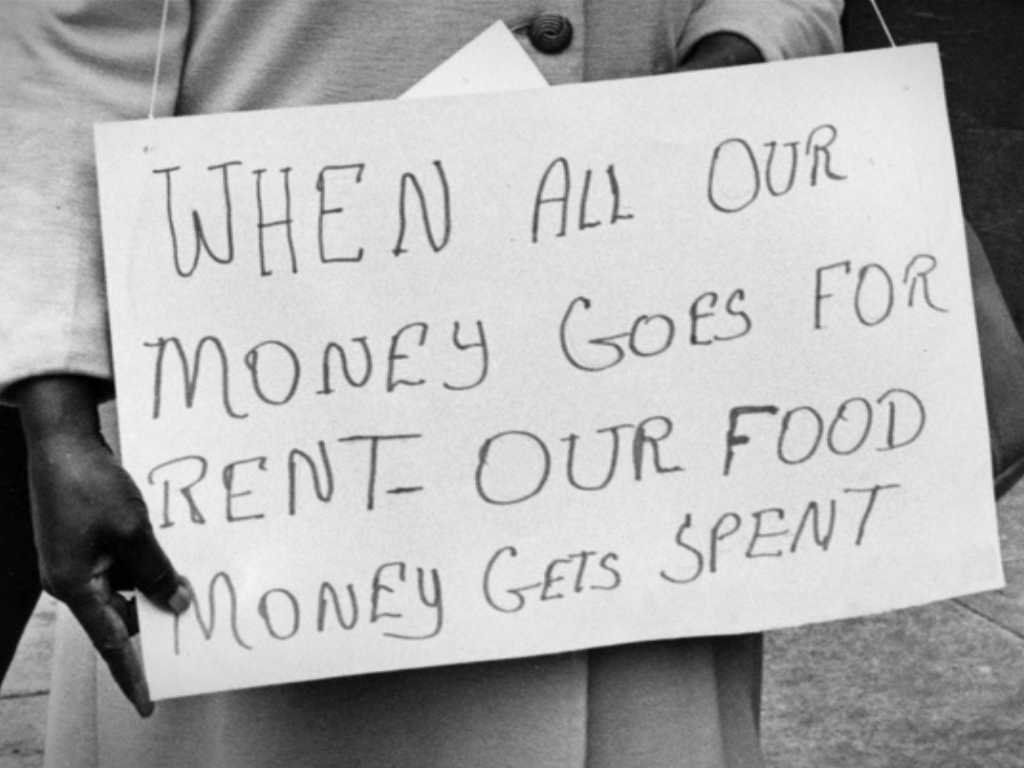Basic Income Earth Network - Switzerland
Financing
How to Cut the Poverty Rate in Half (It's Easy)
How to Cut the Poverty Rate in Half (It's Easy)
« In the United States, we are generally told that poverty is a deeply complicated problem whose solution requires dozens of reforms on issues as diverse as public schooling, job training, and marriage.
But it’s not true. High rates of poverty can, as a policy matter, be solved with trivial ease. How? By simply giving the poor money. »
Shoppers at a food pantry (Reuters)
« The idea also attracts an interesting assortment of political support. Those backing the concept of a basic income have spanned the entire spectrum from left-wing redistributionists like Martin Luther King, Jr. to conservative icons like F.A. Hayek, Milton Friedman, and Charles Murray. »
« That security might not just keep people out of poverty. It might let workers demand better wages and working conditions, because they know they always have something to fall back on. In other words, it could level the playing field for the bottom 99 percent. »
This story published in The Atlantic magazine (millions of monthly visitors) the 29th of October shows that the introduction of an universal basic income in the united States is possible.
Original page: « How to Cut the Poverty Rate in Half (It's Easy) » [+]
- Print node
- Login to post comments
- 26143 reads
Business Insider: A Simple Solution To Ending Poverty
« Everyone's Talking About This Simple Solution To Ending Poverty By Just Giving People Free Money. »
This story on the universal basic income published the 12th of November on Business Insider was written by David Vinik, political reporter. Business Insider is a U.S. business and technology news website launched in February 2009, based in New York City, which draws millions of visitors.

Real wages have been stagnant in America for decades now and income inequality has grown immensely. In the aftermath of the Great Recession, it’s only gotten worse. The Census Bureau reported in September that the 15 percent of Americans (46.5 million) live below the poverty line.
« Real wages have been stagnant in America for decades now and income inequality has grown immensely.In the aftermath of the Great Recession, it’s only gotten worse. The Census Bureau reported in September that the 15 percent of Americans (46.5 million) live below the poverty line. Government benefits like food stamps and TANF help lift some of them above the line, but millions still live below it.
« Economists have long shuddered at the thought of a basic income, because it strongly disincentives work. However, a basic income is just that: basic. Most adults would continue to work to earn extra money. The employment effects would not be non-existent and there may be an increase in part-time work. As Lowrey points out, different studies have found the disincentive effects on work are not as strong as economists feared. »
Read full story on Business Insider. [+]
- Print node
- Login to post comments
- 44111 reads





